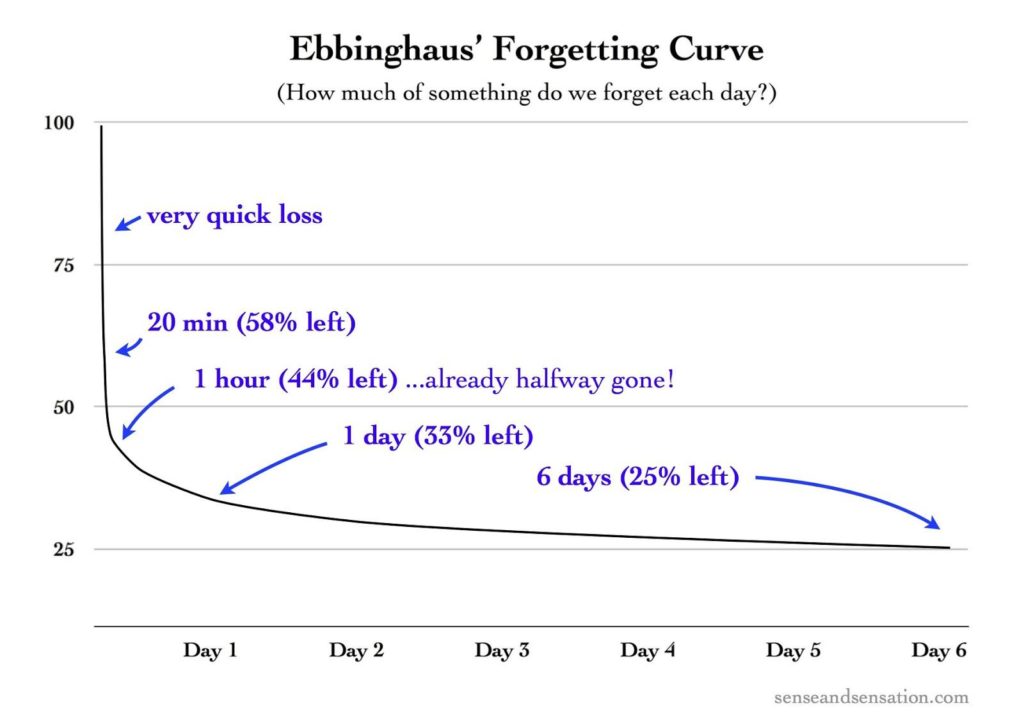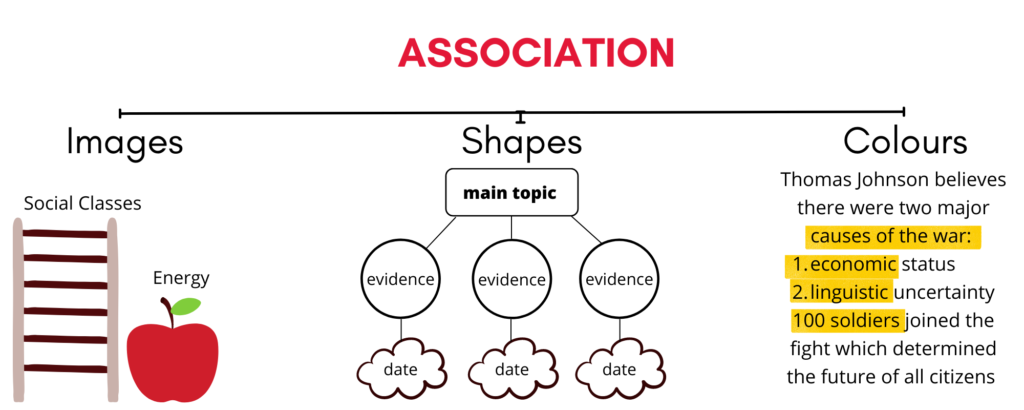
What is Memory?
Memory refers to the ability to encode, store and retrieve information. Focusing intentionally on new material, and creating meaningful connections between new ideas, information, and existing knowledge really improves our learning and memory. It's also important to practice retrieving what we've learned, through strategies like self-testing, so we can access the information we need when we need to.

The Forgetting Curve
Every time you review the information you learned, the forgetting curve is refreshed and gets less steep. Shorter, more frequent study sessions are more effective than one or two long, last-minute cramming sessions.
Sample Ongoing Review Schedule
- 1st Review – Review your notes with the same day (or within 24hrs) and reduce notes to key words or a summary.
- 2nd Review – At the end of the week, look over everything you learned that week and connect that information with the material from the previous week.
- 3rd Review - 2-3 weeks later, review and connect several weeks’ worth of material together.
- Exam Review – Beginning at least 7-10 days prior to the exam, conduct daily review of sections of the material, and conduct an overall review during the last few days.
Memorization Strategies
| Strategy | Description | Example |
|---|---|---|
| Association | Associate the concept that you are trying to memorize with an image, memory, or emotion that has meaning for you. | Associate different concepts with different highlighter colors. |
| Acronym | A word formed from the first letter(s) in a name or phrase. | SCUBA = Self-Contained Underwater Breathing Apparatus |
| Acrostic | A sentence formed from the first letter(s) in a name or phrase. | Science Classification System = Kingdom, Phylum, Class, Order, Genus, Species Acrostic = King Phil Came Over for the Genes Special |
| Rhyme / Song | Use familiar rhymes, rhythms or songs to remember complicated material. | Alphabet song |
| Method of Loci | Think of a familiar location and in your mind, place the items/terms you want to remember, in different locations throughout this space. | To remember a grocery list, imagine a tour around your house. Attach each item to a different room as you walk. |

Additional Resources
| Resource | Description |
|---|---|
| Study Strategies that WORK | Learning Skills Workshop |
